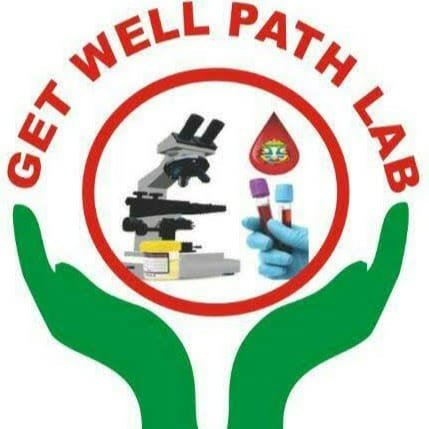Blood tests play a crucial role in diagnosing health conditions, monitoring overall wellness, and detecting diseases early. Blood tests provide valuable insights into your body’s functioning, whether for routine health checkups or specific medical concerns. Below is a detailed list of essential blood tests, their purposes, and what they reveal about your health.
1. Complete Blood Count (CBC)
The CBC test evaluates different components of your blood, including:
🔹 Red Blood Cells (RBCs) – Carry oxygen to body tissues.
🔹 White Blood Cells (WBCs) – Fight infections and indicate immune health.
🔹 Hemoglobin (Hb) – Measures oxygen-carrying capacity.
🔹 Hematocrit (Hct) – Checks the proportion of RBCs in the blood.
🔹 Platelets – Essential for blood clotting.
📌 Why it’s done? To detect anemia, infections, clotting disorders, and overall health status.
2. Blood Sugar Tests (Glucose Tests)
Blood sugar tests measure the amount of glucose in your blood and help diagnose diabetes and prediabetes.
✅ Fasting Blood Sugar (FBS) – Measures glucose levels after 8-10 hours of fasting.
✅ Postprandial Blood Sugar (PPBS) – Measures glucose levels 2 hours after eating.
✅ HbA1c (Glycated Hemoglobin Test) – Provides an average blood sugar level over the past 2-3 months.
📌 Why it’s done? To diagnose and monitor diabetes, insulin resistance, and hypoglycemia.
3. Lipid Profile (Cholesterol Test)
A lipid profile assesses heart disease risk by measuring fat levels in the blood. It includes:
🔹 Total Cholesterol – Overall cholesterol level.
🔹 LDL (Low-Density Lipoprotein) – “Bad” cholesterol, linked to heart disease.
🔹 HDL (High-Density Lipoprotein) – “Good” cholesterol, which protects the heart.
🔹 Triglycerides – A type of fat that increases cardiovascular risk.
📌 Why it’s done? To evaluate heart disease risk, manage cholesterol levels, and prevent stroke.
4. Liver Function Tests (LFTs)
Liver tests assess liver health and detect conditions like hepatitis, fatty liver disease, or liver damage.
🔹 ALT (Alanine Aminotransferase) & AST (Aspartate Aminotransferase) – Indicate liver cell damage.
🔹 Bilirubin – High levels suggest jaundice or liver dysfunction.
🔹 Albumin & Total Protein – Evaluate the liver’s ability to produce proteins.
📌 Why it’s done? To diagnose liver diseases, and alcohol-related damage, and monitor medications that affect the liver.
5. Kidney Function Tests (KFTs/RFTs)
These tests determine how well your kidneys are filtering waste from the blood.
✅ Creatinine – High levels indicate kidney dysfunction.
✅ Blood Urea Nitrogen (BUN) – Measures waste buildup in the blood.
✅ Electrolytes (Sodium, Potassium, Chloride) – Help assess kidney balance.
📌 Why it’s done? To diagnose kidney diseases, dehydration, and high blood pressure-related kidney damage.
6. Thyroid Function Tests (T3, T4, TSH)
Thyroid tests assess thyroid hormone levels, which regulate metabolism.
🔹 TSH (Thyroid-Stimulating Hormone) – Indicates thyroid gland function.
🔹 T3 (Triiodothyronine) & T4 (Thyroxine) – Measure actual thyroid hormone levels.
📌 Why it’s done? To detect hypothyroidism (underactive thyroid) and hyperthyroidism (overactive thyroid).
7. Vitamin & Mineral Tests
Nutrient deficiencies can lead to multiple health problems. Key tests include:
✅ Vitamin D Test – Low levels can cause bone weakness and immune issues.
✅ Vitamin B12 Test – Essential for nerve function and red blood cell production.
✅ Iron & Ferritin Test – Low levels indicate anemia.
✅ Calcium Test – Essential for bone health and muscle function.
📌 Why it’s done? To diagnose nutritional deficiencies and prevent related complications.
8. Infection & Immunity Blood Tests
These tests detect infections, immune responses, and inflammation in the body.
🔹 C-Reactive Protein (CRP) – Indicates inflammation and infection.
🔹 Erythrocyte Sedimentation Rate (ESR) – Detects chronic inflammation.
🔹 HIV Test (ELISA, Western Blot) – Diagnoses HIV infection.
🔹 Hepatitis B & C Tests – Identify liver infections.
🔹 Dengue, Typhoid, Malaria, and COVID-19 Tests – Diagnose common infectious diseases.
📌 Why it’s done? To detect infections early and monitor inflammatory conditions.
9. Hormonal Tests
Hormone imbalances affect metabolism, growth, mood, and reproductive health. Common tests include:
✅ Testosterone Test – Measures male hormone levels.
✅ Estrogen & Progesterone Test – Assesses female reproductive health.
✅ Cortisol Test – Detects stress-related disorders.
✅ Prolactin Test – Evaluates fertility issues.
📌 Why it’s done? To diagnose hormonal disorders, infertility, and stress-related conditions.
10. Cancer Marker Tests
Some blood tests help detect cancer early:
🔹 PSA (Prostate-Specific Antigen) – Prostate cancer screening.
🔹 CA-125 – Ovarian cancer detection.
🔹 CEA (Carcinoembryonic Antigen) – Colon and rectal cancer marker.
🔹 AFP (Alpha-Fetoprotein) – Liver and testicular cancer screening.
📌 Why it’s done? For early cancer detection and monitoring treatment responses.
11. Blood Group & Compatibility Tests
🔹 ABO Blood Grouping & Rh Factor – Determines blood type for transfusions.
🔹 Coombs Test – Detects antibodies against red blood cells.
📌 Why it’s done? For blood transfusions, pregnancy screenings, and organ donations.
When Should You Get a Blood Test?
📌 Routine Checkup – At least once a year.
📌 If You Experience Symptoms – Fatigue, dizziness, weight loss, or frequent infections.
📌 Chronic Conditions – Diabetes, high cholesterol, or liver/kidney disease.
📌 Before Surgery – To check overall health status.
Where to Get Blood Tests?
Visit Get Well Path Lab in Greater Noida for accurate and affordable blood tests. We offer:
✅ Home Sample Collection for convenience.
✅ Fast & Reliable Reports for accurate diagnosis.
✅ Affordable Pricing with no hidden charges.
📍 Visit us in Greater Noida or book a test today!
☎ Contact: 099530 01594
🌐 Explore our packages: https://getwelllabs.in/our-packages/
Take charge of your health with Get Well Path Lab – Your trusted partner in diagnostics! 💙



Add comment